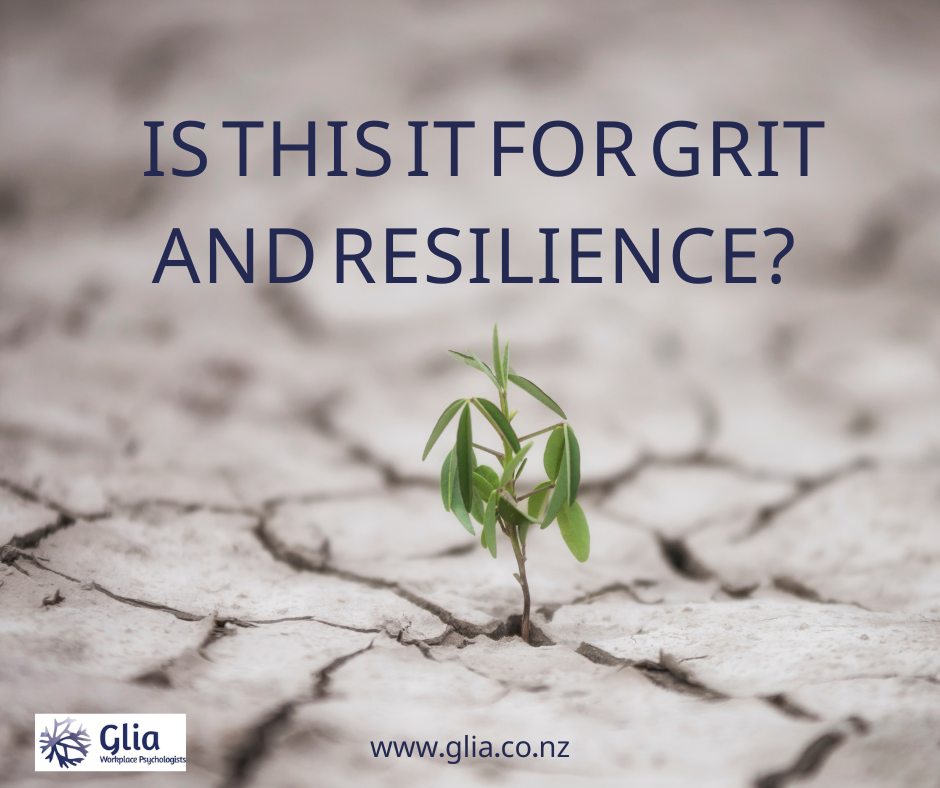I love survival stories. Whilst often harrowing, they demonstrate the incredible power of the human mind and spirit in the most inhospitable conditions.
Touching the Void, Everest, Aquanaut, 127 hours. I like to explore the world through the eyes of extreme adventurers, from the comfort of my living room. When I think of grit and resilience, stories like these are the first to spring to my mind.
Cave-diver John Volanthen and a team of Thai Navy Seals walk out from Tham Luang Nang Non cave in Thailand, on June 28, 2018 in Chiang Rai.
Photo by Linh Pham. Follow the artist’s work here.
What are grit and resilience?
Grit and resilience are related concepts but not synonymous.
Grit describes the tendency to persevere despite obstacles and is often associated with courage, persistence, and a willingness to take risks.
Resilience is the capacity to bounce back from challenging experiences.
Laura Dekker, New-Zealand born Dutch sailor, pursuing her dream to be the youngest person to sail single-handedly around the world in the face of repeated opposition from Dutch authorities - grit.
Getting up and continuing to sail after being whacked on the head by a flying fish - resilience.
Laura Dekker aboard her boat Guppy. Find the image and read more about her achievements here
Grit contains a persistent effort component, where resilience focuses on recovery. Both have been cited as contributing factors to reaching goals in spite of difficulty. You can read a study exploring the relationship between these traits explored in Nursing students here.
A quick Facebook poll of my friends and family (not the most accurate of research, I admit) offered up as examples of grit multiple tales of war heroes, and people’s Grandmas. Like my adventure story heroes, when thinking of grit, my friends suggested people who had undergone significant trauma, and survived against the odds.
Yet, resilience and grit are perhaps now more readily associated with corporate wellness schemes, positive psychology, and psychometric testing in recruitment. A few years ago, I was required to complete a ‘Grit test’ as part of a job application for a sales role.
Grit and resilience in the workplace
Resilience is one of the most common search words that leads people to the websites of workplace psychology and leadership coaching organisations, and workshops on resilience and grit are both excellent sellers. In fact, until recently, we offered workshops on building resilience.
‘Grit - the Power of Perseverance and Passion’ by scientist Angela Duckworth, is a New York Times bestseller.
Stress - a workplace problem. Resilience workshops - are they really the solution?
Artist credit: Sarah Andersen, Sarah’s Scribbles. Support Sarah’s patreon here (£1 per month to help this awesome artist create her work). Follow her Insta here.
I had every intention of writing this article on the positive aspects of grit, and how attributes exhibited by survivalists can be emulated by the average person. You too, I would write, can mimic the incredible tenacity of an 11 year old who has been trapped underground on an elevated rock amid rising floodwaters for a week and somehow not given up.
And yet, I began to wonder, is developing the ability to withstand trauma really what we want at work?
Wouldn’t it be preferable to work in an environment where the capacity to avoid PTSD wasn’t a necessary quality?
Artist Credit: Dilbert by Scott Adams
I, for one, would like a job where the skin of a rhino and the eternal optimism of Ned Flanders (the perpetually happy neighbour of Homer Simpson, for anyone who didn’t grow up in the nineties) are not required attributes for success.
My Gran was a child during the Great Depression, and later served as a nurse in World War 2. She was as tough as an old boot, and so accustomed to poverty, people would say that she could ‘live off the smell of an oily rag.’ She lived to 98, and soaked her postage stamps in water in order to re-use them to the end of her days. But, her toughness made many of her personal relationships difficult, and I doubt that she would have wished the experiences that made her so resilient onto anyone else.
My Nan in her late nineties. She could have faced Churchill in a battle and come out better off, but if you had an emotional problem, she was not your lady.
How important is grit?
Grit, according to Angela Duckworth’s research, is correlated with the sustained passion and perseverance that can help us to achieve long term goals over time. Her studies showed that ‘grittier’ individuals are more likely to complete their academic studies, and to stay employed. Grit can help us to persist. And, grit has been linked to the prevention of academic burnout.
But, grit has also been associated with the tendency to stubbornly cling to ideas that are doomed to failure. A gritty person might be less inclined to pivot away from a bad business decision. Sometimes persistence is very helpful, other times, it might be better to quit.
Grit is helpful until it isn’t, as in the case with entrepreneurs who doggedly pursue business ideas that just won’t sell, or adventurers who have bags of grit but lack skills and experience.
A 2019 study on cadets at a US Military Academy sought to replicate Duckworth’s 2007 research but to further examine additional non-cognitive qualities such as self-efficacy, hope and optimism. The researchers concluded that whilst they found grit to be a higher predictor of success than cognitive ability; other factors were also important. Further research is required to examine exactly how impactful these other traits are, and how they work together to achieve positive outcomes in people.
What we can draw from this is that there is no single trait that makes a desirable employee, and that when it comes to positive workplace mental health and burnout prevention, rather than focus on individual grit and resilience - or any other employee attribute - we should focus on the environment.
Artist credit: this meme is floating around so many sites, I couldn’t find the artist. Holler if you can credit.
If the tank is toxic, we do not go out and buy more resilient, grittier fish. We clean the water.*
Rather than recruiting the gritty, and sending employees on workshops to develop their resilience, let’s create working environments that are more conducive to good mental health.
Let’s develop diverse teams who work together and help each other to achieve innovation, so that long-term, big goals do not require one exceptionally tenacious person to reach.
Let’s look out for our peers, and recognise that while grit and resilience can give humans the ability to withstand remarkable challenges, they come with a price, and when it comes to work, that price may not be worth paying.
Did you like this article? Follow the writer, Ngaire Wallace, on LinkedIn.
Interested in measuring the ‘water quality’ in your organisation?
Contact us for a Psychosocial Risk Assessment.
We provide workplace Mental Health assessments for your teams that are science-based and practical, along with a roadmap to improvement that you can input immediately to create positive, measurable and lasting change.
Find out how your fish are feeling right now, and how you can improve the environment they are swimming in by working together with our qualified, experienced Psychologists.
*I have borrowed this excellent metaphor from Peter Kelly, HSE expert, Psychologist and IOSH Council member, neatly summarised in this article exploring Psychosocial Risk by Peter Crush, for IOSH magazine. .







